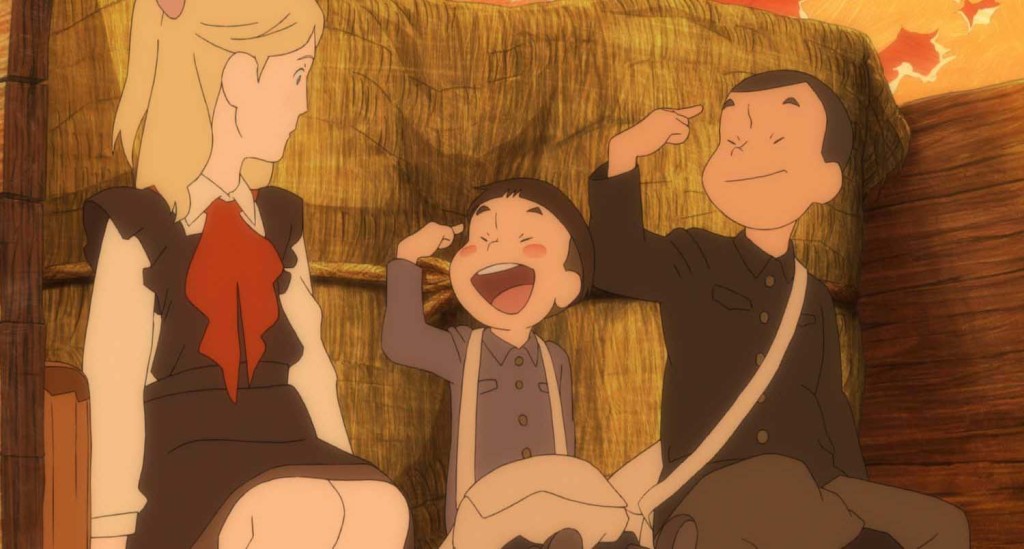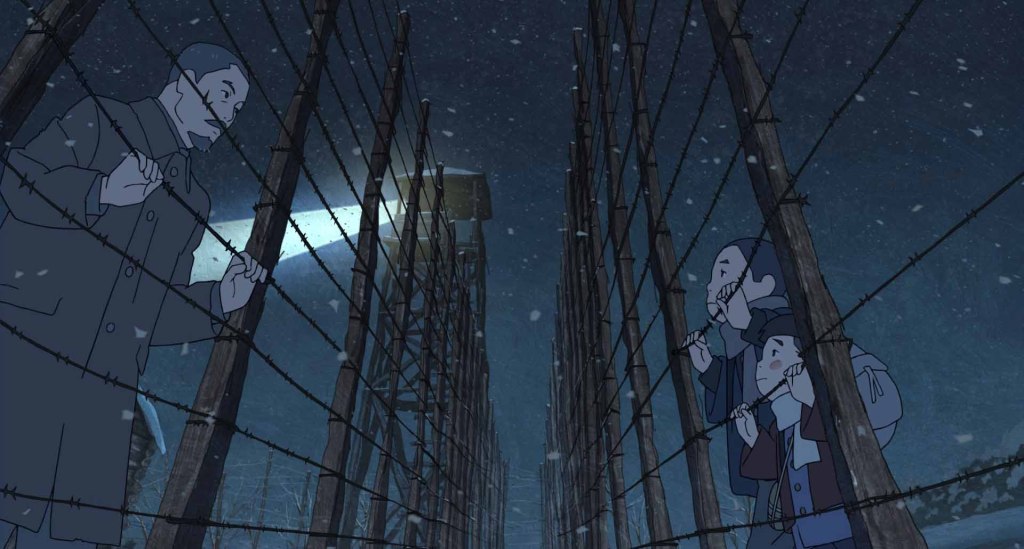Writer: Shigemichi Sugita, Yoshiki Sakurai
Cast: Kota Yokoyama, Masachika Ichimura, Yusuke Santamaria, Saburo Kitajima, Polina Ilyushenko, Tatsuya Nakadai
Cert: PG Running time: 102mins
Year: 2014

The lowdown: Recounting the story of the tiny Shikotan island off the north of Japan, claimed as part of Russia in the aftermath of World War 2. Two brothers’ worlds change forever when Soviet troops land on the island, and later forces above them threaten the fragile peace the Japanese and Russian islanders share. A touching, beautifully animated account of a little known chapter in post-WW2 history, although suffering the same lack of context that blights many Japanese accounts of WW2.
The full verdict: Inevitably destined to be compared to Studio Ghibli’s cherished Graves of the Fireflies, Giovanni’s Island is an engrossing, admirable account of childhood in the aftermath of World War 2.
The lives of Junpei (Yokoyama) and Kanto have been relatively untouched by the conflict, save for the excitement of anti-aircraft gunners in the mountains and their father Tatsuo (Ichimura) heading up the self-defense brigade.
But, like the rest of the island the young brothers are shaken when Soviet troops land on the beach. Their home is claimed by a high ranking commander and the boys, plus Tatsuo, their grandpa and their uncle Hideo (Santamaria) must live in the stable.
Junpei befriends Tanya (Ilyushenko), the Commander’s daughter, but their blossoming romance is threatened when the Japanese islanders’ right to stay on Shikotan is put in jeopardy.
Giovanni’s Island treads carefully through the post-war history, taking pains to avoid demonising the Russian settlers. Director Nishikubo’s humanist message is that when politics and religion are removed all nationalities have the potential to live in peace, a valuable philosophy indeed for a family film.
Unfortunately, this good work is compromised by the film’s absence of any acknowledgement of Japan’s Imperial aggression igniting the Pacific War and the subsequent suffering of many nationalities, including the Japanese. Miyazaki’s coy The Wind Rises looks positively militant in comparison.
An earlier scene depicting the boy’s father and grandfather, honourable men both, grief stricken over Japan’s defeat moves the film close to revisionist territory. Alongside this, the continued survival of uncle Hideo, an opportunistic black marketeer, could be read as a commentary that Japan’s best men died during or in the year’s following the war.
Consequently, as the story moves into increasingly darker and ultimately tragic moments there is the sense of victimhood that marks most Japanese treatment of the period.
Yet, the central message is one of hope and tolerance so it seems overkill to damn one good natured film because it continues an almost instituionalised blinkeredness.
The animation confidently places traditionally simple anime characters into richly detailed, deeply researched backdrops to consistently rewarding effect. Particularly when the film visually invokes Kenji Miyazawa’s Night on the Galactic Railroad, the beloved Japanese children’s book that becomes a symbol of imagination’s great strength in providing solace during times of hardship.
Sharp-eared viewers will also note legendary Japanese actor Tatsuya Nakadai, star of the monumental and thematically similar The Human Condition, as the voice of the elderly Junpei.
Sentimental and moving, and recommended with reservations.
Rob Daniel
[youtube id=”un89LJr8pQo”]





